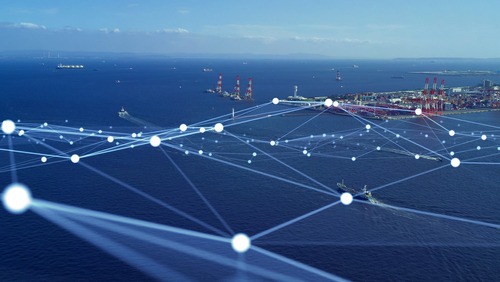
More than $39.8 million of funding possibilities from the United States Department of Transportation’s Maritime Administration (MARAD) opened to four new marine highway projects last week after the department included them in America’s Marine Highway Program (MHP).
These projects included the Riverbulk Steel Shuttle in North Carolina; Alaska’s Freight Expansion Service for Yakutat, Alaska; Unalaska Express in Alaska; and the Puerto Rico Maritime Transportation Services Project. By being labeled Marine Highway Projects, they have been dubbed planned services or expansions of existing services on designated Marine Highway Routes, which opens eligibility for application to AMHP grant awards.
“We’re pleased to make four new marine highway projects eligible for federal funding so they can move more goods more efficiently,” Transportation Secretary Pete Buttigieg said. “We are using resources from President Biden’s Bipartisan Infrastructure Law to make historic investments in our nation’s marine highways – part of our continuing action to address global supply chain disruptions and lower costs for American families.”
Riverbulk supports an existing barge service responsible for transporting steel plates along M-95, M-64, and M-495 Marine Highway corridors. The various ports involved in this operation could tackle barge cargo and reduce the number of trucks and shipping costs affiliated with it. Yakutat represents an expansion of an existing freight service on the M-5 Marine Highway Route, including fishing vessels, freighters, dock extension, and more. Unalaska will support the growth of the CMA CGM barge terminal at the City of Unalaska’s International Port of Dutch Harbor to increase cargo volumes by 20 percent.
Lastly, the Puerto Rico project will create routes in Ceiba, Culebra, and Vieques to essential services on the main island. According to the DOT, the ferry service is the only way to bring palletized and utilized freight to that island.
The AHMP is meant to increase the usability of the nation’s navigable waterways to relieve supply chain congestion, increase transportation options and improve the overall flow of goods.
“We will also address resiliency, the reduction of emissions, and other public benefits like supply chain congestion and safety,” Deputy Maritime Administrator Lucinda Lessley said.
The new marine highways, and others like them, will have until June 17 to apply for grant funding, which in this round could include up to $39,819,000.